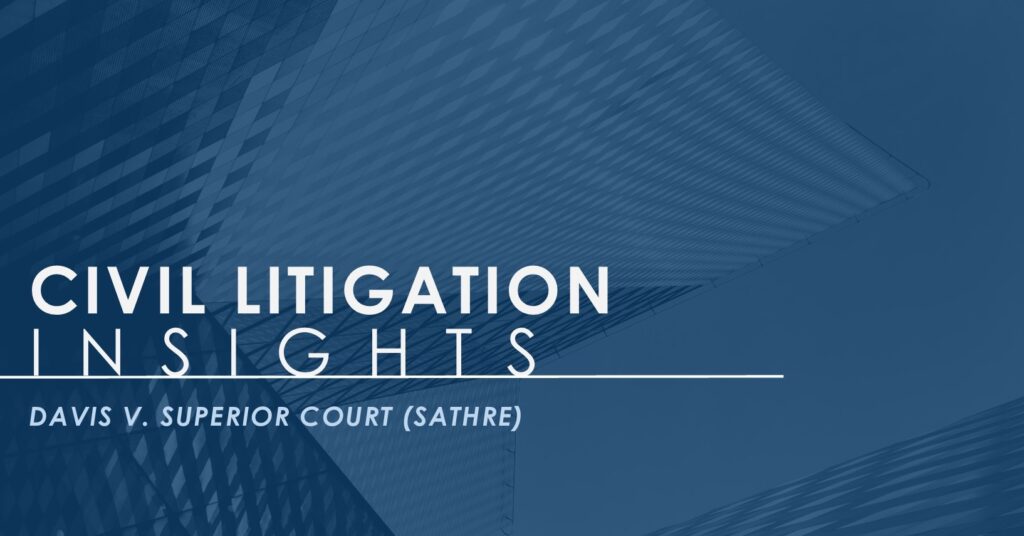Sometimes Zealous Advocacy Requires Helping Your Adversary
Aug 07, 2020By Carl I. S. Mueller, Esq. and Sam Fogas, Esq., The Maloney Firm, APC

Although it may seem counterintuitive, certain situations may require an attorney to advocate to a court on behalf of the due process rights of an adversary. In June 2020, the California Court of Appeal published its opinion, Davis v. Superior Court (Sathre) (2020) 50 Cal.App.5th 607, emphasizing that indigent, pro-per judgment debtors have the same access to the courts as litigants represented by an attorney and encouraging the superior courts to embrace remote appearances, particularly during the COVID-19 pandemic era. The opinion encourages attorneys to consider when to treat adversaries combatively versus when to look out for adversaries’ rights.
.
In Davis, Plaintiff Curtis Sathre attempted to enforce an almost $160,000 judgment against Defendant Jamie Davis, an indigent, pro-per judgment debtor, and conduct a judgment debtor examination. A 16-month battle ensued in which Davis filed multiple ex parte applications, motions to quash service, and a motion to stay proceedings pending appeal. At their crux, Davis’s motions centered around the fact that she lived too far away to be compelled to come to Los Angeles for a judgment debtor exam because she was indigent and unable to afford to travel. Many of Davis’s efforts were thwarted as the trial court’s department rules did not allow a pro per litigant to appear telephonically, even though Davis claimed she could neither travel to Los Angeles or afford counsel for the hearings. When Davis was finally able to hire an appearance attorney, the trial court denied Davis’s request for a court appointed court reporter, despite the fact that the court had previously granted Davis’s request for a waiver of court reporter fees.
.
The Court of Appeal vacated the trial court’s rulings, ordered that Davis’s motions be reheard, and ordered that Davis be allowed to appear telephonically and without counsel, if so desired. The Court of Appeal emphasized three points in its opinion. First, court rules and policies should be consistent with increasing access to the courts by indigent and pro-per litigants. Rules functionally requiring pro-per litigants to hire appearance attorneys or restricting indigent, pro-per litigants from appearing telephonically are inconsistent with this principle. Second, trial courts need to embrace remote appearances by everyone, particularly during the COVID-19 pandemic. Third, and finally, indigent litigants must be provided a court reporter at hearings, given a timely request.
.
Attorneys are trained to continuously push their adversaries, challenge them, and take advantage of any possible leverage over an opponent. However, as the Davis Court instructed, this strategy can sometimes backfire. Attorneys cannot take a blanket combative approach in litigation if it means their adversary is denied basic rights. While it is unclear what exactly Sathre’s attorney could have done differently, the trial court’s rulings blocking Davis’s access to the courts resulted in increased costs, appearances, an appeal, and sixteen months the client will never get back. Attorneys should endeavor to remind all courts to protect the minimum rights and access of all litigants, when possible. Failure to account for your adversary’s rights may ultimately cost your client additional time and money.
.
About the Authors:
Carl Mueller is a business litigation attorney and represents clients in attorney-client disputes of all kinds. Sam Fogas is a civil litigation attorney. If you have questions regarding this article, contact Carl Mueller at cmueller@maloneyfirm.com or Sam Fogas at sfogas@maloneyfirm.com.



